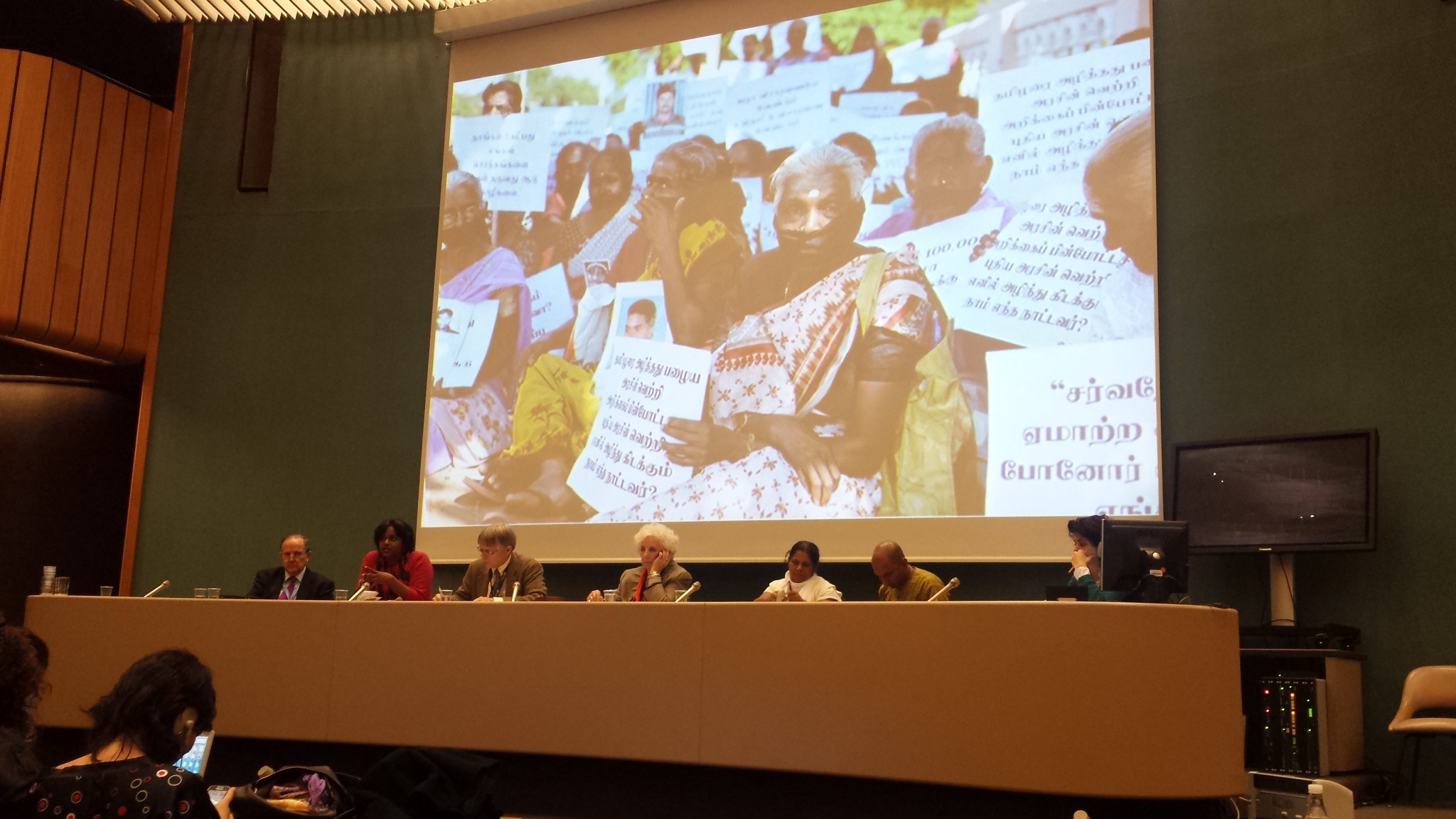 |
| Photograph: Tamil Guardian |
Truth telling can never be a substitute to justice said the United Nations Special Rapporteur on Torture Juan Mendez at the United Nations Human Rights Council on Wednesday.
Speaking at a side event on enforced disappearances organised by Amnesty International, Juan Mendez, noting international concern on the situation in Sri Lanka, said,
“We must ensure that the plight of the victims is not swept under the rug. Even truth is disclosed or political solution is offered.”
Mr Mendez added further, “The remedy to torture and disappearances, cannot just be compensation. It must include disclosing of truth. Truth telling can never be a substitute to justice and reparations cannot be a substitute to truth telling.”
Responding to a question on how trust in domestic processes could be built with the Tamil community in Sri Lanka, Amnesty International’s representative to the United Nations in Geneva, said,
“The government can immediately release a list of all persons placed in detention.”
Bhavini Fonseka a senior researcher at the Centre for Policy Alternatives, addressing the event, outlined, the ongoing situation of disappearance’s in Sri Lanka.
Noting that Sri Lanka had the second highest number of cases of disappearances with the UN working group , Ms Fonseka warned, that Amnesty International’s estimate of 80,000 disappeared could be far higher.
The researcher noted that there was “a culture of appointing commissions in Sri Lanka and not seeing it through,” meaning that any domestic search for truth and justice would need carefully defined benchmarks to measure progress.
Speaking on how the Sri Lankan government could build trust, with the Tamil community, Ms Fonseka, outlined the need for the government to have an in depth consultation with Tamil community and release previous commission reports and findings.
A prominent human rights defender, Ruki Fernando, who was detained and released last year, recalling attacks on the president of the #FreeJeyakumari campaign, said,
“People campaigning against disappearances are deemed as traitors.”
Mr Fernando, noting that there had been a number of mass graves uncovered in recent years, said that “grave challenges remained to build people’s trust for a domestic disappearance process.”
Noting Tamil protests in the North-East, he added,
“People on the ground have been protesting for an international investigation into disappearances.”
The campaigner for the disappeared Sandhya Ekneligoda, added to the discussion with calls for an international investigation into disappearances whilst calling on the OISL report was strengthened and released.
Responding to a question on how the Sri Lankan government could build trust with the Tamil community, Ms Ekneligoda, said, “The president has a duty to tell the Tamil people what he will do and make progress on releasing Tamil political prisoners.”
Estela de Carlotto, an enigmatic campaigner for the disappeared in Argentina, expressed concern with regards to the situation in Sri Lanka and called on cooperate with the UN.
